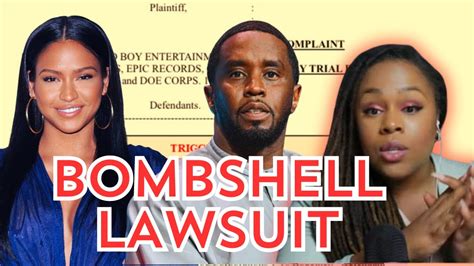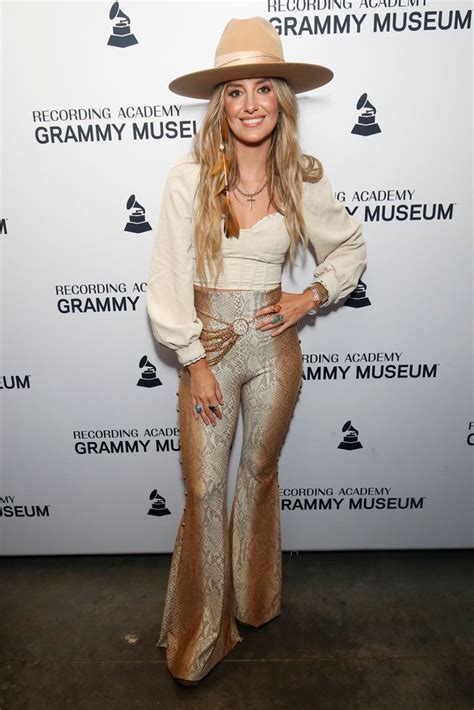
A former employee of Sean “Diddy” Combs, Capricorn Clark, has testified that singer Cassie Ventura, Combs’ former girlfriend, lacked exceptional vocal talent, stating she was “no Whitney or Mariah,” amidst ongoing legal battles involving allegations of sexual abuse and misconduct against Combs.
Capricorn Clark, who worked as an assistant and in various roles at Bad Boy Entertainment, made the assessment during a deposition related to the lawsuits against Combs. Clark’s testimony adds another layer to the complex narrative surrounding the allegations against Combs and his relationships. While not directly related to the accusations of abuse, the evaluation of Cassie’s talent provides context to her career trajectory under Combs’ management.
According to court documents and the deposition reported by several media outlets, Clark’s statements provide insight into the inner workings of Bad Boy Entertainment and the dynamics within Combs’ professional circle. Clark, who held various positions at Bad Boy including assistant roles, was seemingly familiar with Cassie’s career from close quarters. The claim that Cassie lacked the extraordinary vocal abilities of artists like Whitney Houston and Mariah Carey, while subjective, may reflect internal discussions or perceptions within the label regarding Cassie’s marketability and artistic direction.
The deposition highlights the scrutiny Combs faces as he navigates through multiple lawsuits alleging sexual assault, abuse, and misconduct. Cassie Ventura settled her lawsuit against Combs in November 2023 shortly after filing, but the allegations continue to impact Combs’ reputation and business dealings. Other lawsuits, including those filed by other women and a producer, are still pending.
Clark’s testimony provides a glimpse into the environment in which these relationships and career decisions unfolded, even though it does not directly address the core allegations of sexual misconduct. The comment about Cassie’s singing talent, though seemingly ancillary, offers a wider context to the power dynamics and expectations within Combs’ professional and personal relationships.
The ongoing legal battles against Combs involve accusations ranging from sexual assault and sex trafficking to infliction of emotional distress. These allegations, brought forward by multiple plaintiffs, have prompted federal investigations and significantly impacted Combs’ public image. His homes have been raided by federal agents, and several individuals associated with him have been questioned.
Combs has vehemently denied the allegations. His legal team has asserted that the lawsuits are motivated by financial gain and are based on fabricated or distorted information. They also highlight the settlement reached with Cassie Ventura as an indication that the matter was resolved amicably.
The scrutiny of Combs’ past relationships and business practices forms a significant part of the overall narrative. The deposition of Capricorn Clark, with her comments on Cassie’s talent, serves as an example of how the legal proceedings are prompting the revelation of details about the inner workings of Combs’ empire and the perceptions held by those within his circle.
The case continues to unfold, with new details and testimonies emerging regularly. As the legal proceedings advance, the public will gain more insight into the allegations against Combs and the environment in which these events allegedly occurred. The various perspectives and accounts presented will be crucial in determining the outcome of the lawsuits and the lasting impact on Combs’ legacy.
The assessment of Cassie’s talent as “no Whitney or Mariah” reflects the high standards of the music industry and the pressures faced by artists under the management of powerful figures like Combs. The deposition also underscores the broad scope of the legal challenges Combs faces, as seemingly minor details can provide additional context to the complex web of allegations and relationships.
The public’s attention remains focused on the unfolding legal drama and the potential consequences for Combs and his associates. The case serves as a reminder of the importance of accountability and the ongoing efforts to address allegations of sexual misconduct and abuse within the entertainment industry.
The legal proceedings against Sean Combs are far from over, with several lawsuits still pending and federal investigations ongoing. The testimony of Capricorn Clark, while not directly related to the allegations of sexual misconduct, adds a layer of complexity to the narrative surrounding Combs and his relationships. The scrutiny of his past and present actions will continue to shape the public’s perception of Combs and his legacy.
The unfolding of these cases will likely have far-reaching implications for the entertainment industry as a whole, potentially leading to increased awareness and accountability regarding issues of sexual misconduct and power dynamics.
Further Contextualization and Analysis:
The statement from Capricorn Clark regarding Cassie’s singing ability operates on multiple levels. Firstly, it highlights the brutally competitive nature of the music industry. Comparisons to iconic vocalists like Whitney Houston and Mariah Carey set an incredibly high bar, one that very few artists can realistically reach. By stating that Cassie was “no Whitney or Mariah,” Clark is essentially saying that Cassie did not possess the exceptional, once-in-a-generation vocal talent of these superstars.
Secondly, the statement underscores the power dynamics inherent in the artist-manager relationship, particularly when the manager is as influential as Sean Combs. As the head of Bad Boy Entertainment, Combs had significant control over Cassie’s career trajectory. His belief in her potential, even if her vocal talent was perceived as less than extraordinary by some, was crucial to her success. Clark’s comment suggests that within Bad Boy, there may have been a recognition that Cassie’s appeal extended beyond her vocal prowess, perhaps encompassing her image, stage presence, and overall marketability.
Thirdly, the statement can be interpreted as a reflection of the evolving landscape of the music industry. While exceptional vocal talent remains highly valued, other factors such as songwriting ability, performance skills, and social media presence have become increasingly important in determining an artist’s success. Cassie’s career arguably benefited from these broader trends, as she cultivated a unique sound and image that resonated with a specific audience.
Furthermore, the timing of Clark’s testimony is significant. It comes amidst a series of serious allegations against Sean Combs, ranging from sexual assault to sex trafficking. In this context, even seemingly innocuous statements about Cassie’s talent can be interpreted as contributing to a broader narrative about Combs’ control over the lives and careers of the artists he managed.
It is important to note that Clark’s statement is a subjective assessment of Cassie’s vocal ability. While it may reflect the opinions of some within Bad Boy Entertainment, it does not necessarily represent an objective truth. Musical talent is multifaceted and open to interpretation. What one person perceives as a lack of extraordinary vocal talent, another may perceive as a unique and appealing sound.
The case involving Sean Combs serves as a stark reminder of the power dynamics that exist within the entertainment industry and the potential for abuse and exploitation. The allegations against Combs have sparked a broader conversation about the need for greater accountability and transparency in the industry, as well as the importance of protecting artists from exploitation and abuse.
The scrutiny surrounding Combs’ past relationships and business practices is likely to continue as the legal proceedings unfold. The testimonies and evidence presented in these cases will shed further light on the environment in which these events allegedly occurred and the extent to which Combs may have abused his power.
The outcome of these cases will have significant implications for Combs’ legacy and the future of Bad Boy Entertainment. It will also serve as a test case for the entertainment industry, demonstrating the extent to which powerful figures will be held accountable for their actions.
The public’s attention remains focused on the unfolding legal drama and the potential consequences for Combs and his associates. The case serves as a reminder of the importance of ongoing efforts to address allegations of sexual misconduct and abuse within the entertainment industry and the need for greater protections for artists and other vulnerable individuals.
The situation is multifaceted, touching upon talent evaluation, artist management, power dynamics within the music industry, and, more broadly, the ongoing conversations about sexual misconduct and accountability. The comment, though seemingly about singing ability, becomes a piece in a larger, more complex puzzle.
The perspective offered by Capricorn Clark adds to the multi-layered narrative surrounding Sean Combs and the artists associated with him. It serves as a stark reminder of the intense pressures and subjective evaluations inherent in the music industry, especially when careers are shaped under the influence of powerful figures. As the legal battles continue, these insights contribute to a broader understanding of the dynamics at play and the potential consequences for all involved.
Frequently Asked Questions (FAQs):
Q1: Who is Capricorn Clark and what was her role at Bad Boy Entertainment?
A: Capricorn Clark was an employee of Bad Boy Entertainment, Sean “Diddy” Combs’ record label. She held various roles, including assistant positions, giving her insight into the inner workings of the company and the relationships between Combs and his artists, including Cassie Ventura.
Q2: What was the specific comment Capricorn Clark made about Cassie Ventura’s talent?
A: During a deposition related to lawsuits against Sean Combs, Capricorn Clark stated that Cassie Ventura was “no Whitney or Mariah,” implying that she did not possess the exceptional vocal abilities of singers like Whitney Houston and Mariah Carey.
Q3: Why is Capricorn Clark’s statement relevant to the ongoing legal cases against Sean Combs?
A: While the statement about Cassie’s talent is not directly related to the allegations of sexual abuse and misconduct against Combs, it provides context to her career trajectory under Combs’ management and offers a glimpse into the power dynamics within Bad Boy Entertainment. It contributes to the overall narrative surrounding Combs and his relationships.
Q4: What are the main allegations against Sean Combs in the current lawsuits?
A: The lawsuits against Sean Combs include accusations ranging from sexual assault and sex trafficking to infliction of emotional distress. These allegations have been brought forward by multiple plaintiffs and have led to federal investigations.
Q5: Has Cassie Ventura commented on Capricorn Clark’s statement, and what is the current status of her lawsuit against Sean Combs?
A: There is no publicly available information to suggest Cassie Ventura has directly commented on Capricorn Clark’s statement. Cassie Ventura settled her lawsuit against Sean Combs in November 2023 shortly after filing it. The terms of the settlement were not disclosed.









